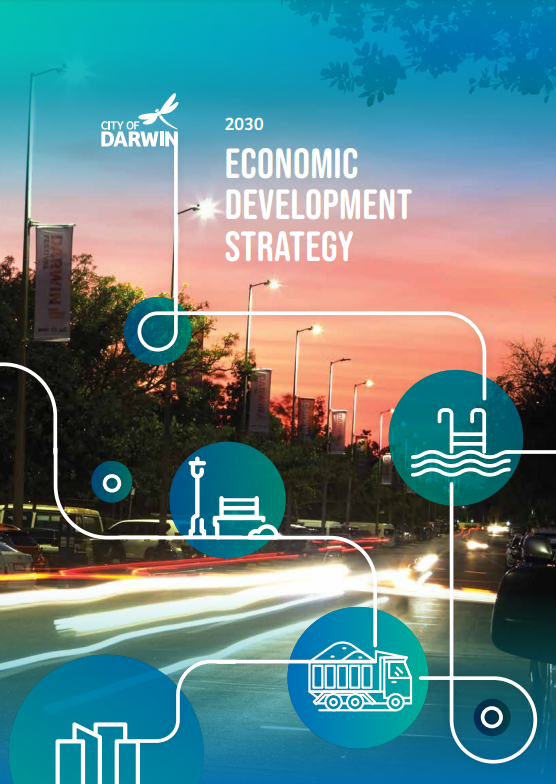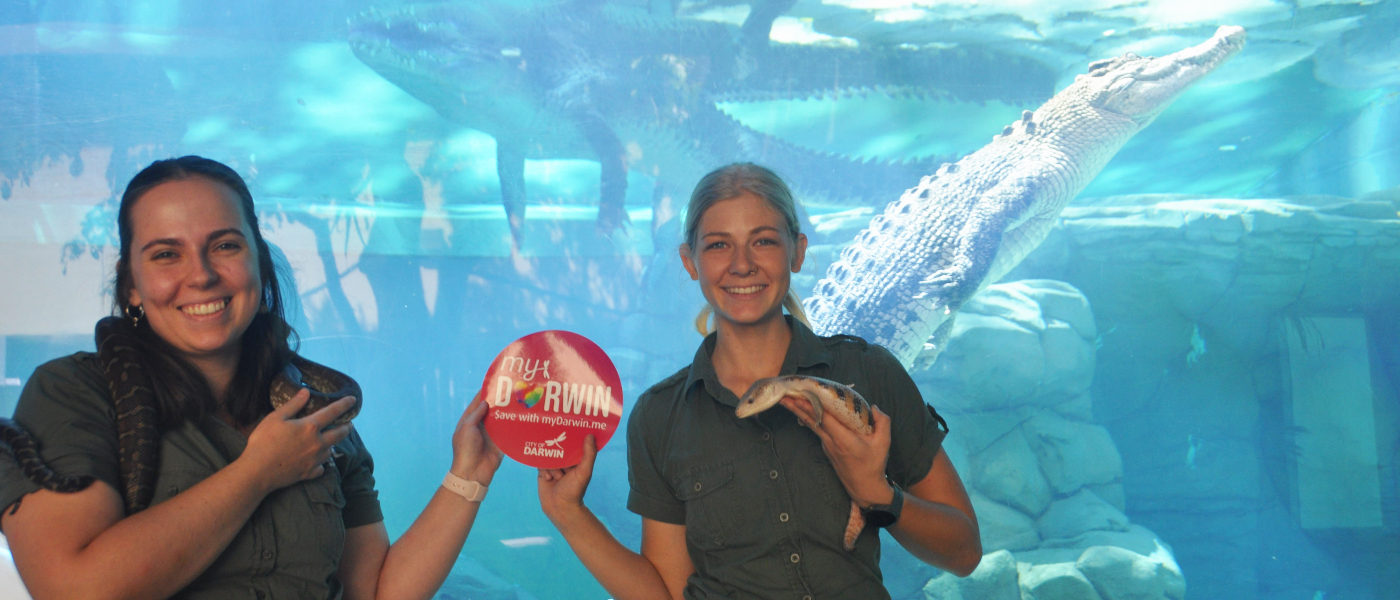2030 Economic Development Strategy
In early 2020, City of Darwin launched a 2030 Economic Development Strategy to establish a strong foundation and framework to capitalise on economic opportunities and ensure sustainable approaches to achieve economic growth.
Some of the key achievements since 2020 include:
- Creating a policy and procedures to procure 95% local expenditure.
- Partnering with the Australian Government and Territory Government to deliver on the Darwin City Deal.
- Expanding the CCTV networks across the municipality as part of #SmartDarwin.
- Delivering a Darwin events program, including successful Christmas, Australia Day and Bombing of Darwin events.
- Delivering a successful International Relations Program, including sponsoring various multicultural events.
The 2021-2023 City of Darwin Economic Development actions focus on:
- Capitalising on commercial assets in the City.
- Promoting Darwin as a place to live, invest, travel and study.
- Supporting initiatives to grow the economy and retain people and jobs in Darwin.
- Developing innovation hubs for our community and future generation.

Darwin Economic Overview
Darwin is home to 85,397 people, supports 48,039 jobs, and has an annual economic revenue of $19 billion in 2021. Due to the impact of COVID19, Darwin's total Gross Regional Product is valued at $9.5 billion, decreasing by 4.2% and 8.6% from 2020 and 2019 respectively. However, the population increased by 4.1% from 2020. The unemployment rate is declining to 3.3% in March 2022, compared to 5.9% in the December quarter of 2021.
The top three economic contributors are Public Administration & Safety, Construction, and Rental, Hiring & Real Estate Services. The Public Administration & Safety industry sector is also the largest employer with 9,070 jobs, representing 18.88% of total employment within the region. The tourism sector is valued $470.492 million, which is 2.5% of total economy value.
There were 554,000 domestic overnight visitors to Darwin year ending March 2022, increasing by 96.5% from year ending March 2021.
The total building approvals in 2021/22 were valued at $458.135 million, which increased by 57% in value compared to 2020/21.
Economic Data Explanatory Note:
The datasets below have been updated based on Release 1 of the 2021 Census data. Some data is subject to be different in Release 2 in October 2022 and Release 3 in 2023. The Release 1 estimates use 2016 employment data, 2019 National Accounts input/output and 2021 Gross State Product.
Data Sources:
- Remplan Economy
- National Institute of Economic and Industry Research (NIEIR) 2021. Compiled and presented in economy.id by .id (informed decisions).
Darwin Residential Population
Darwin Unemployment Rate
International Exports
Gross Regional Product
Building Approvals
Industry Revenue
Economy - Jobs
Weekly Income
myDARWIN Program
City of Darwin initiated the myDarwin economic stimulus program in 2020, which supported the local economy by encouraging spending at the businesses through discounts subsidised by City of Darwin. The program provides $40.00 in vouchers per day to registered users, using a 25% discount on purchases. As of October 2021, there is a total of $1,150,000 funding provided to the Darwin community. The program gained 45,208 registered users and 476 registered businesses and $6.6 million was spent at local businesses.
Click here to access more information about myDarwin

Darwin Night Time Economy
There are 525 Core Night Time Economy[1] businesses in Darwin. Food is the dominant sector contributing to the Darwin’s Core Night Time Economy (NTE), which occupies 67% of the Local Government Area’s Core NTE established compared to 62% nationally, and less on Drink (7% vs. 8% nationally) and Entertainment, (27% vs. 33% nationally).
The NTE supports 3,735 jobs with a total sales turnover of $573 million in 2020, contributing 3.6% of the entire economy. Google mobility data indicates that activity at retail and recreation locations in the city is higher than pre-pandemic baseline.
69% of the NTE businesses open in the evening between 6 pm to 9 pm, 37% from 9 pm to 12 am, 19% at late night from 12 am to 3 am, and 14% is from 3 am to 6 am.
For more information about Darwin Night Time Economy, please visit the Australia Night Time Economy.
Night Economy by Type
1. Night Time Economy – economic activity which occurs at establishments primarily between the hours of 6 pm and 6 am. Core Night Time Economy - The activities that provide primary establishment services to leisure users between 6pm and 6am. The Core NTE is split into sub-sectors of Drink, Entertainment and Food and then further sub-divided.
Source: Ingenium Research was engaged by Council of Capital City Lord Mayor to conduct the research to capture the scale, diversity and direction of development of local, state and national night time economy in Australia.
